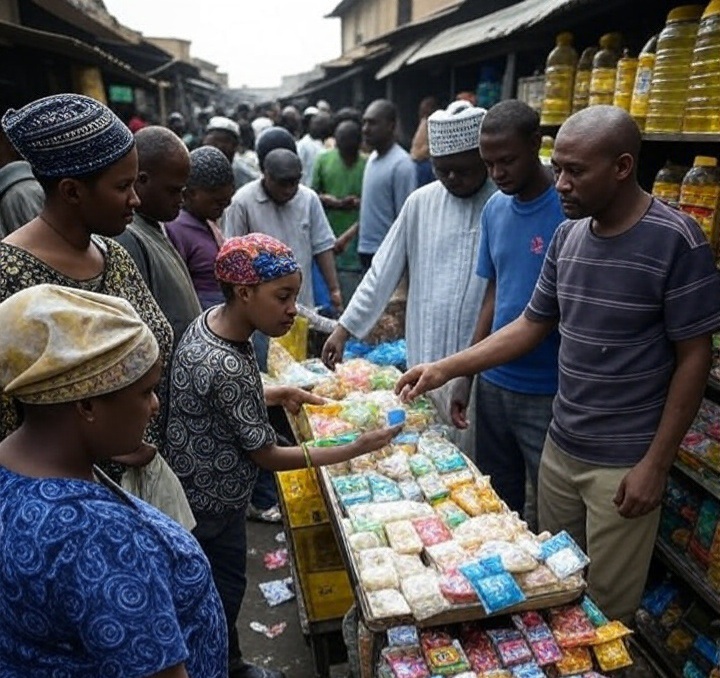In Nigeria’s bustling markets, a quiet revolution is reshaping commerce: the rise of the sachet economy. Tiny packets of soap, sugar, or cooking oil dominate shelves, not as a spark of entrepreneurial genius but as a stark reflection of economic survival. In a nation that once dreamed of prosperity, daily life is now measured in teaspoons, not cups. This shift, driven by poverty and soaring inflation, is a wake-up call for stakeholders—a signal that Nigeria’s economic fabric is fraying, and bold action is needed to stitch it back together.
By 2025, Nigeria’s economic landscape tells a sobering story. Rampant inflation and stagnant wages have slashed consumer purchasing power, forcing families to buy essentials in the smallest possible quantities. From urban centers to rural outposts, sachets have become the currency of necessity, allowing households to stretch meager budgets. The middle class, once a beacon of stability, is shrinking as financial pressures mount. This isn’t just a change in shopping habits; it’s a symptom of an economy where aspiration is rationed, and survival trumps ambition.

Businesses are feeling the strain too. Take the hypothetical case of Adaobi Nwankwo, an entrepreneur who pitched her beverage startup to investors, only to be told: “The market can’t afford your vision. Nigeria’s consumers are buying in sachets now.” Her story echoes across industries, as companies pivot to smaller, cheaper packaging to meet demand. This isn’t innovation—it’s adaptation to a reality where the average consumer can’t afford more. While this keeps businesses afloat, it locks them into a cycle of low margins and high volumes, stifling long-term growth.
The sachet economy also poses a threat to sustainable development. Single-use packets, while affordable, are piling up in Nigeria’s streets and waterways, exacerbating an already dire waste management crisis. The environmental cost of this survival strategy is steep, threatening public health and ecosystems. Moreover, the focus on short-term affordability undermines investment in quality goods or infrastructure, trapping Nigeria in a low-value economic loop.
For stakeholders—policymakers, businesses, and civil society—the sachet economy is a call to action. It exposes systemic failures: leadership that hasn’t curbed inflation, policies that haven’t bolstered incomes, and a market structure that prioritizes survival over progress. To break this cycle, Nigeria needs inclusive economic reforms that rebuild purchasing power, strengthen the middle class, and incentivize sustainable practices. Businesses can lead by balancing affordability with eco-friendly packaging, while governments must invest in job creation and price stability.
The sachetization of Nigeria’s economy is more than a trend—it’s a warning. It shows what happens when hope is parceled out in tiny doses. Stakeholders have a choice: accept a future of teaspoons or build an economy where cups overflow once more. The time to act is now.









































